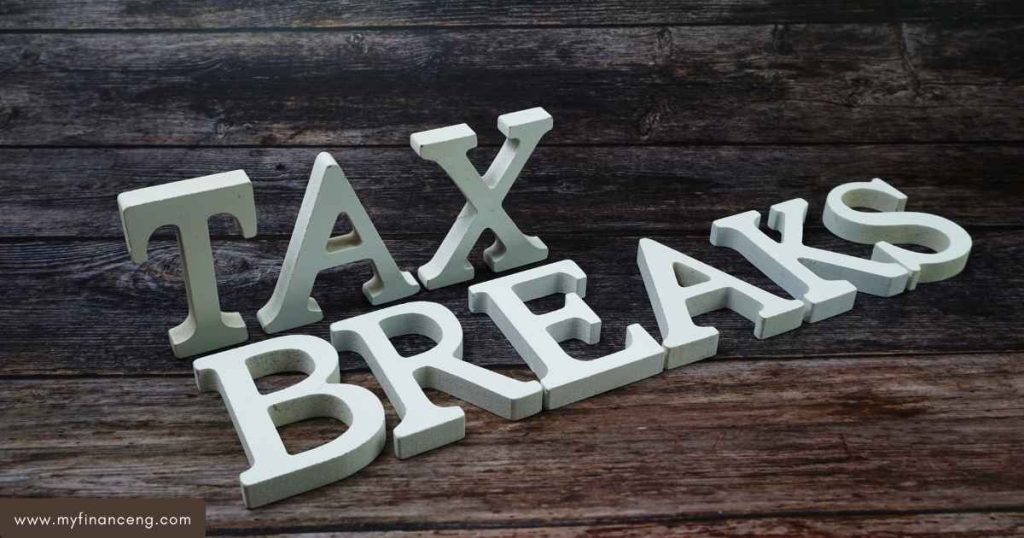Introduction
Learn how separating business and personal finances boosts success, simplifies tax filing, and protects your assets for long-term growth.
Business vs personal finances in the fast lane of entrepreneurship is probably one of the most important points in separating the two; if not for avoiding confusion, then to definitely have your business running nice and hard.
Maintaining separation between these two worlds of finance is key to forming a successful legal business.
In this article, we’re going to delve into the various reasons why maintaining business and personal finances separately can help entrepreneurs streamline operations, gain clarity around finances, and set their enterprises on the path to success.
Leave Your Chair to Avoid the Sunk Cost Fallacy
One of the most important reasons for maintaining separate business and personal finances is the ability to draw the line for where your money is going.
This division helps business owners keep better track of their finances, minimizing the risk of errors and ensuring that each money decision is made with a clear mind.
Keeping finances separate also isolates issues from legal angles, especially taxes. By keeping it clear, you’ll be able to justify the fact that you are submitting legitimate business expenses, and you won’t get caught out if the taxes you filed come into question.
Furthermore, financial transparency keeps accountability in business affairs so that you are able to trace your profits, losses and investments.
The Dangers of Mixing Business and Personal Expenses
Combining business and personal finances tends to spiral into chaos. Entrepreneurs might have trouble drawing a line between personal and business spending and end up with irrelevant financial records.
This lack of transparency makes it difficult to gauge the financial health of an organization , which influences decision-making.
Legally, combining finances can put personal assets at risk for business liabilities. For instance, when your business faces financial turmoil, your business creditors may be able to take control of your personal property as well if both are tied to your business’s financial status.
During tax time, a lack of financial separation can also create errors, which means big penalties and late fees.
Knowing the Fundamental Variations of Company and Personal Finances
First, there’s your finances, which involve how you manage your household budget, savings, investments, and credit cards—all the things that you pay to belong to the 21st century and have a roof over your head while you’re using them.
On the other hand, business finances involve what it takes to do business, specifically income, expenses, payroll, and overhead.
It is important to keep those two categories clear. The business-only finances – money transactions involving business operations only, and personal finances are based on individual transactions and savings.
How Dividing Money Maximizes Tax Breaks

One of the greatest benefits of keeping business and personal finances separate is that it allows you to leverage tax benefits.
When funds are correctly segregated, owners can easily recognize expenses for which they can claim deductions, such as office supplies, business trips, and buying equipment.
These deductions can lower your taxable income significantly, saving you money at tax time. Keeping personal and business expenditures separate makes it simple to file taxes correctly, sparing you from potential errors that result in an audit or penalty.
It’s also helpful in acknowledging tax credits and incentives you may be qualified to receive that you’d otherwise miss out on.
Personal Credit Vs Business Credit
Growing your business’s credit is an important aspect of expansion and can affect your ability to put in for loans, negotiate better Supplier Terms, and obtain advantageous financing terms.
That said, commingling personal and business finances may negatively impact your credit score. Business owners use their credit for business transactions, limiting access to favourable loans.
By keeping business and personal financial lives independent, you shield your credit from the potential hazards of business obligations.
This distance also gives you the flexibility to concentrate on establishing a strong business credit profile, which will put your company in a great position to obtain loans when necessary.
How Financial Separation Improves Business Decision Making
Financial separation gives the business owner a better idea of the company’s economic state. When you keep business finances separate from personal finances, you can more easily track cash flow, spot trends, and inform your decisions.
Having real-time numbers empowers better forecasting and budgeting, which means smarter decisions about where to invest, cut costs, and grow (G1).
When business owners can have confidence in their financial numbers, they make better decisions that directly impact their business’s growth and long-term success.
Why You Need to Open a Business Bank Account
It’s wise to open a separate business bank account as soon as possible to keep business and personal finances separate. A Business Bank Account Makes It Easier to Handle Income, Expenses, and Taxes.
Many banks provide accounts that are particularly designed for business owners and include payroll services, expense tracking, and business check ordering options.
Doing business through a personal account may result in ambiguity and mishandling of money.
By separating personal and business transactions, you’ll be able to monitor your company’s financial performance better and facilitate accurate record-keeping for tax purposes.
Establishing The Right Bookkeeping And Accounting Systems

Solid bookkeeping is a foundation of sound business practices, and having the right accounting systems in place means you can know exactly where your business is financially. Suppose you’re a small business owner or independent service provider.
In that case, accounting software can be a real game changer, making it easier to keep records, organize expenses, create financial statements and prepare for tax time.
For small business owners, selecting the right accounting software seems important. Some popular options are QuickBooks, FreshBooks, and Xero, all of which offer strong tools to keep business and personal finances separate.
Considering The Effects On Shielding Of Liability
With a separate business bank account, personal assets are more secure and less at risk should the business be sued or if it has outstanding obligations.
Business types such as LLCs or corporations provide liability protection by attaching legal separation between business and business owner.
If your business encounters financial difficulty, this means your personal assets, e.g., the family home or the car, stay put; they are not vulnerable.
Dividing of Finances to Manage Cash Flow Better
Distinct finances contribute to pure cash flow management. When business and personal finances are mixed, there is one more layer to watch for potential cash flow issues that could creep up on you.
By separating business income and expenses, business owners can more easily monitor the health of their cash flow, forecast future revenue, and pinpoint areas that need attention. This clarity is important to keeping businesses healthy.
Optimization of Business Processes by Separating Financials from Business
It’s more convenient because it unscrambles how business payments, receipts, and invoicing are organized.
When tracking these transactions in a separate business account, business owners won’t have to spend unnecessary time on their operations or know where every dollar comes from and where every dollar goes.
How Establishing Financial Separation Impacts Your Business’s Credibility

A company that eliminates its costs to reveal a clearly divided account can be considered professional and dependable. This financial exposure fosters confidence among investors, customers, and vendors.
It says that the business owner is well-run and able to handle company finances responsibly. Companies with rigorous financial records are perceived as less risky investments, meaning that most lenders are unlikely to deny credit to a business with thorough financial records.
A solid financial base also enhances a company’s ability to entice potential investors — who want to see fiscal responsibility — as well as possible acquirers.
Bracing for Financial Success Separate from Each Other
When considering future expansion, it is crucial to keep personal and business funds separate. Transparent financial information also makes it simple for business owners to measure success and decide when to grow operations.
Whether the goal is to solicit new investment, apply for business loans, or expand product offerings, financial independence is the precursor to future success.
Why You Should Have Separate Finances For Personal Financial Management
With business finances separate, personal finances are easier to manage. Personal budgeting is easier because you’re not confusing personal expenses with business expenses anymore. This clarity helps manage personal debts, savings, and investments more effectively.
Breaking up the money flow also helps avoid the anxiety of marrying business-related money challenges with personal money matters.
Long-Term Gains of Splitting Assets and Debts
Sound financial health makes long-term success possible. It keeps business and personal finances separate, thereby limiting the potential risk of mismanagement and the threat of significant financial loss.
Gradually, this divide translates to enhanced financial health, greater access to capital and more robust economic growth.
What Can Go Wrong If You Don’t Keep Finances Separate?
There is no line between business and personal finances. Mixing business and personal finances exposes you to different financial problems: tax issues and a lot of other things, like hard-to-get financing.
The phenomenon of combining business and personal money is well documented in a number of case studies demonstrating that when businesses mix personal with business funds, they frequently run into cash flow problems, tax miscalculations, and legal issues.
These are also the same businesses that can’t get a loan or investment because of their poor financial house.
How To Completely Disentangle Your Business And Personal Finances

The first step to financially disentangling is establishing strong boundaries. Open a separate bank account for your business, use accounting software to track incoming revenue and outgoing business expenses.
Only write checks or make withdrawals related to your business from your business account. After a while of doing this, it will become second nature, and your business will thank you for it.
Resources and Tools for Getting Your Finances Untangled
There are a number of tools and resources available to help you keep your business and personal finances separate. That is, accounting software such as QuickBooks and Xero already comes with mechanisms that allow users to juggle personal and business expenses.
And, if you don’t use financial management apps like Mint or YNAB, you can also track your personal financial affairs while making sure business transactions are kept separate through these apps.
Conclusion: Separating Business and Personal Finances
To sum it up, dividing your business and personal money is among the most important strategies for entrepreneurs who would like to be more successful with a lasting impact.
Business owners can streamline their finances, increase cash flow, and maximize tax advantages while keeping personal and business finances separate.
Perhaps most significantly, it shields personal assets against business liabilities, contributing to a more secure financial future for the company and the owner alike.

